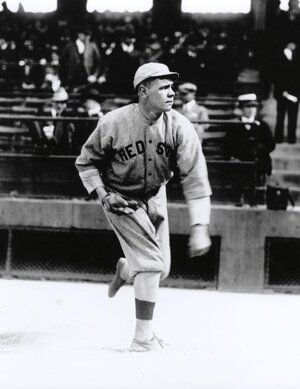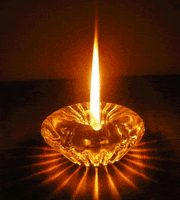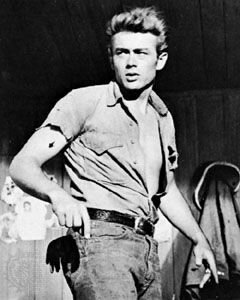nashcounty
Distinguished Member
- Messages
- 322
Follow along with the video below to see how to install our site as a web app on your home screen.
Note: This feature may not be available in some browsers.
Somehow I knew you were going to post this. And you added Don Mclean's paean as well. Nice touch. Waylon sure lucked out.
 Hearst was tried and convicted in March 1976 for bank robbery and felonious use of firearms. Her defense attorney was F. Lee Bailey. Sentenced to seven years, she spent the next three years partly in prison and partly at liberty (during appeals). She was released in February 1979 after U.S. Pres. Jimmy Carter commuted her sentence. Shortly thereafter she married her former bodyguard Bernard Shaw.
Hearst was tried and convicted in March 1976 for bank robbery and felonious use of firearms. Her defense attorney was F. Lee Bailey. Sentenced to seven years, she spent the next three years partly in prison and partly at liberty (during appeals). She was released in February 1979 after U.S. Pres. Jimmy Carter commuted her sentence. Shortly thereafter she married her former bodyguard Bernard Shaw.
Apparently in addition to his prodigious baseball skills, the Babe had quite the sexual appitite. But still had enough common decency not to force himself on anyone who was unwilling. It is reported that at his hotel room parties, at one point in the proceeding the Babe would announce, "Seizing the moment, savoring the time, perhaps a bit tipsy, the Babe climbed atop a piano and bellowed at the women, ‘OK, girls, anyone who does not want to get [bleep]ed now can leave!’ ”Babe Ruth (born February 6, 1895, Baltimore, Maryland, U.S.—died August 16, 1948, New York, New York) was chosen as one of the first five members of the Baseball Hall of Fame in 1936, a year after he finished his career. He transformed baseball through his home-run hitting, which produced an offensive revolution in the sport. His accomplishments, together with his personal charisma and his rags-to-riches life story, made Ruth the most celebrated American athlete of his era, immortalized as the Sultan of Swat and the Bambino.
And so began the curse.
The deal that changed the game
Written by: Matt Kelly
In the early months of 1919, everything appeared to be going smoothly for the Red Sox.
Just below the surface, however, financial woes were threatening the future of the Boston club. Despite a pennant-winning season in 1918, dwindling wartime attendance caused the club’s gate receipts to drop 35 percent. Meanwhile, club owner Harry Frazee was hemorrhaging money due to struggles with his theatrical productions in New York.
Amid all of this, the team’s most popular player began to feel that he was worth more than what he was being paid. In January 1919, Babe Ruth demanded a new contract. Specifically, he requested his yearly salary be raised from $7,000 to $15,000 – a figure that only the great Ty Cobb was making at the time. He also wanted to play left field exclusively, telling the press, “I’ll win more games playing every day in the outfield than I will pitching every fourth day.”
Frazee scoffed at Ruth’s demands, and Ruth held out and became front-page fodder for Hub newspapers. But when the team’s ship set sail for Spring Training in Florida – and a lucrative exhibition series scheduled with John McGraw’s Giants – without its star on board, both sides sensed it was time to come to the table. Frazee and Ruth settled for a $10,000 yearly salary just weeks before Opening Day, but when the slugger set a new home run record with 29 blasts in 1919, it was clear that new three-year contract would not stick. That winter, Yankees owners Jacob Ruppert and Tillinghast Huston offered the cash-poor Frazee a deal he felt he couldn’t refuse, setting into motio
I was sitting in my doctor’s waiting room several years ago. I was reading a Sports Illustrated that had excerpts from a book that was coming out which had stories about the Yankees from the 20’s thru the ‘50’s. The Yankees were on a road trip in the 30’s and the beat writers traveled with them. The team provided the writers with all with everything (food, liquor, women) with the understanding they wouldn’t cover the personal lives of the players. After dinner one night the reporters set up card tables in their car. They had only been playing for a few minutes when the door to the car burst open and Babe Ruth came running in completely naked. Right behind him was a naked woman with a pair of scissors in her hand. One of the old writers looked up from his cards and said, “There’s another story we won’t be covering.”Apparently in addition to his prodigious baseball skills, the Babe had quite the sexual appitite. But still had enough common decency not to force himself on anyone who was unwilling. It is reported that at his hotel room parties, at one point in the proceeding the Babe would announce, "Seizing the moment, savoring the time, perhaps a bit tipsy, the Babe climbed atop a piano and bellowed at the women, ‘OK, girls, anyone who does not want to get [bleep]ed now can leave!’ ”
Link: BABE HOMERED WITH GIRLS, TOO
Dean Smith passed away on this day in 2015. He had been a presence in my life for all the years of which I had conscious memory. I was born in 1958 and he came to Carolina as an assistant men’s basketball coach to Frank McGuire in that same year. In 1961 he became the head coach, a job he was offered because he was known to be honest and because that team’s comportment had recently been dishonest. He also had no true head coaching experience and would come cheap. His slate was basically clean.
Coach Smith went on to become a legend of intellect, honesty, fair play, education, and “snatching victory from the jaws of defeat.” He coined the phrase “athletics are the front porch of the university” and from 1961 until he retired in 1997 kept his program — a program because it was so much more than just a team that played games — invitingly respectable.
I was a ‘sporty’ kid, first captivated by baseball. Because I ended up playing third base in Little League I gravitated to the Baltimore Orioles, where the greatest fielder of all time, Brooks Robinson, played that position. It was around that time, 1967 or so, that Batman, Zorro, and Tarzan began to give way to real life heroes of the diamond and the hard court. My first basketball icons were very local - the high school Chatham Central Bears whose wins and losses I saw live on chilly Chatham evenings in the packed and partisan gym in Bear Creek.
Thanks to C.D. Chesley, by 1970 we were getting two Atlantic Coast Conference basketball games a week on television. I lived in a Carolina home so we knew where to find the rest of ‘our’ games on the radio. Deep echoes of Bill Currie, “The Mouth of the South” are embedded in my memory but it was Woody Durham that really came to voice the Tar Heels for the many untelevised games ‘back then.’ But between the sometimes broadcast TV games, the always-on-the-radio ones, the heavy basketball coverage in ‘The Greensboro Daily News,’ and the not-to-be-missed “Dean Smith Show” on Sunday I came to know my coach. My Deddy also flavored how I valued Coach Smith with his carefully chosen words spoken during time outs, post game, and pasture walks counting cows. When he respected someone there was no doubt left in his tone of voice. And he truly revered Coach Smith.
I became a basketball player, a point guard, and Coach Smith’s principled and rational ‘Carolina Way’ was my inspiration. I was fortunate beyond any of my imaginings in those days to attend the ‘Carolina Basketball School’ in the early 1970s. I mowed a lot of yards and tilled gardens to foot that bill but it may have been the best money I ever spent. Really.
Coach Smith very intentionally called his summer programs in Chapel Hill a school and not a camp. So much more than game skills were communicated there. “Play hard, play smart, play together,” seems like such a simple precept - and it is - but when embraced fully it is a blueprint for living. I’m not going to go all full blown testimonial here but I will say that I came to find Coach Smith’s worldview as one worthy of emulation in times of challenge.
Had Coach’s life not been lived so openly and had he not so crucially met enduring challenges so much bigger than a 40-minute game he’d be but a personality I suppose. But instead he was a philosopher - Kierkegaard was one of his muses. At the risk of being sacreligious I admit that I have indeed asked myself, “What Would Dean Smith Do?” and his book, “A Coach’s Life” has been a guide to living.
It is not lost on me - in fact it struck me hard many years ago - that Coach Smith’s ideology was born of Christian theology and Progressive political thought. He found the left side of the aisle to be by far the most human, giving, honest, and by application, the most successful. He was as hated for that as he was loved.
I miss him and from the heat of “down eight points with seventeen seconds” moments to what is the genuinely ethical thing to do when I vote to every interaction in between, I do my best when I include a reflection of Coach Smith’s philosophy in my decision-making. I don’t say that with even an inkling of flippancy. Coaches can be our guides as readily as teachers or preachers - they can lead us for the common good or toward selfish ends.
Teams, collective enterprises, moments when the sum total is greater than the parts, communities — all succeed when the individuals in them work for a common goal that brings to each what they most need to thrive. Coach Smith taught that on a small scale with 15 young men at a time, modeling how we could be our best selves.
“Play Hard, Play Smart, Play Together” friends and we can carry the day.
Dean Smith, 2/29/31 — 2/7/15.

Thanks a million Don. Brought a tear to my eye.Dean Smith passed away on this day in 2015. He had been a presence in my life for all the years of which I had conscious memory. I was born in 1958 and he came to Carolina as an assistant men’s basketball coach to Frank McGuire in that same year. In 1961 he became the head coach, a job he was offered because he was known to be honest and because that team’s comportment had recently been dishonest. He also had no true head coaching experience and would come cheap. His slate was basically clean.
Coach Smith went on to become a legend of intellect, honesty, fair play, education, and “snatching victory from the jaws of defeat.” He coined the phrase “athletics are the front porch of the university” and from 1961 until he retired in 1997 kept his program — a program because it was so much more than just a team that played games — invitingly respectable.
I was a ‘sporty’ kid, first captivated by baseball. Because I ended up playing third base in Little League I gravitated to the Baltimore Orioles, where the greatest fielder of all time, Brooks Robinson, played that position. It was around that time, 1967 or so, that Batman, Zorro, and Tarzan began to give way to real life heroes of the diamond and the hard court. My first basketball icons were very local - the high school Chatham Central Bears whose wins and losses I saw live on chilly Chatham evenings in the packed and partisan gym in Bear Creek.
Thanks to C.D. Chesley, by 1970 we were getting two Atlantic Coast Conference basketball games a week on television. I lived in a Carolina home so we knew where to find the rest of ‘our’ games on the radio. Deep echoes of Bill Currie, “The Mouth of the South” are embedded in my memory but it was Woody Durham that really came to voice the Tar Heels for the many untelevised games ‘back then.’ But between the sometimes broadcast TV games, the always-on-the-radio ones, the heavy basketball coverage in ‘The Greensboro Daily News,’ and the not-to-be-missed “Dean Smith Show” on Sunday I came to know my coach. My Deddy also flavored how I valued Coach Smith with his carefully chosen words spoken during time outs, post game, and pasture walks counting cows. When he respected someone there was no doubt left in his tone of voice. And he truly revered Coach Smith.
I became a basketball player, a point guard, and Coach Smith’s principled and rational ‘Carolina Way’ was my inspiration. I was fortunate beyond any of my imaginings in those days to attend the ‘Carolina Basketball School’ in the early 1970s. I mowed a lot of yards and tilled gardens to foot that bill but it may have been the best money I ever spent. Really.
Coach Smith very intentionally called his summer programs in Chapel Hill a school and not a camp. So much more than game skills were communicated there. “Play hard, play smart, play together,” seems like such a simple precept - and it is - but when embraced fully it is a blueprint for living. I’m not going to go all full blown testimonial here but I will say that I came to find Coach Smith’s worldview as one worthy of emulation in times of challenge.
Had Coach’s life not been lived so openly and had he not so crucially met enduring challenges so much bigger than a 40-minute game he’d be but a personality I suppose. But instead he was a philosopher - Kierkegaard was one of his muses. At the risk of being sacreligious I admit that I have indeed asked myself, “What Would Dean Smith Do?” and his book, “A Coach’s Life” has been a guide to living.
It is not lost on me - in fact it struck me hard many years ago - that Coach Smith’s ideology was born of Christian theology and Progressive political thought. He found the left side of the aisle to be by far the most human, giving, honest, and by application, the most successful. He was as hated for that as he was loved.
I miss him and from the heat of “down eight points with seventeen seconds” moments to what is the genuinely ethical thing to do when I vote to every interaction in between, I do my best when I include a reflection of Coach Smith’s philosophy in my decision-making. I don’t say that with even an inkling of flippancy. Coaches can be our guides as readily as teachers or preachers - they can lead us for the common good or toward selfish ends.
Teams, collective enterprises, moments when the sum total is greater than the parts, communities — all succeed when the individuals in them work for a common goal that brings to each what they most need to thrive. Coach Smith taught that on a small scale with 15 young men at a time, modeling how we could be our best selves.
“Play Hard, Play Smart, Play Together” friends and we can carry the day.
Dean Smith, 2/29/31 — 2/7/15.

Great pics there.I'm so glad that I could come "down the mountain" for this two weeks later.

 Dean was next cast in producer-director George Stevens’s Giant (1956), a drama set on a Texas ranch that also starred Rock Hudson and Elizabeth Taylor. Shortly after completing the film, the restless Dean drove off in his silver Porsche to compete in a sports car rally in Salinas, California. Speeding down the highway, he crashed headlong into a Ford sedan and was killed instantly. Almost immediately an intensely loyal cult was established, and within days of his death he became a film icon. Both Rebel Without a Cause and Giant were released posthumously, and he received an Oscar nomination for the latter film. The James Dean mystique continued to flourish into the 21st century.
Dean was next cast in producer-director George Stevens’s Giant (1956), a drama set on a Texas ranch that also starred Rock Hudson and Elizabeth Taylor. Shortly after completing the film, the restless Dean drove off in his silver Porsche to compete in a sports car rally in Salinas, California. Speeding down the highway, he crashed headlong into a Ford sedan and was killed instantly. Almost immediately an intensely loyal cult was established, and within days of his death he became a film icon. Both Rebel Without a Cause and Giant were released posthumously, and he received an Oscar nomination for the latter film. The James Dean mystique continued to flourish into the 21st century.